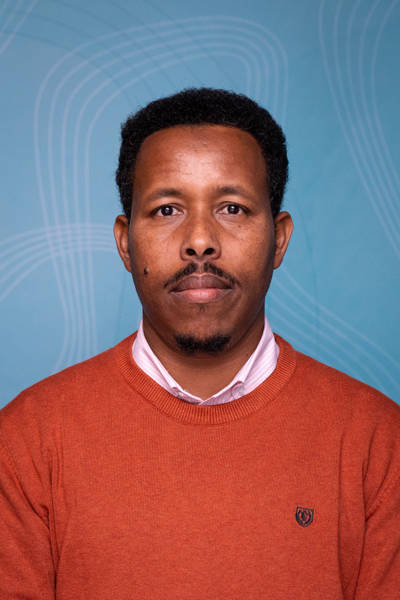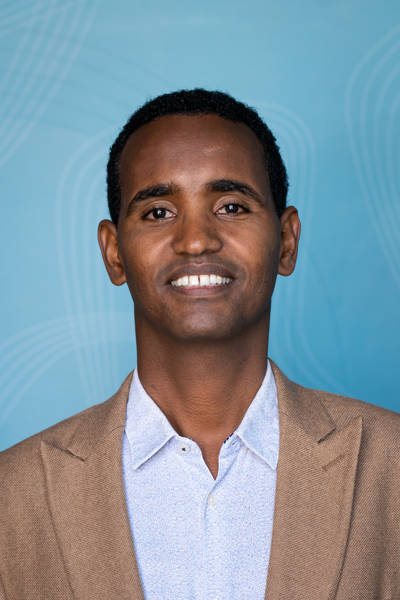Why has the Puntland state of Somalia been unable to conduct a ‘one person one vote’ election for over 24 years?
Posted Wednesday, 9 Nov 2022 by Ahmed M. Musa, Hassan Aden, Asha Adam & Cindy Horst
Somalia has not held multiparty elections since late 1969 when the military seized power from a democratically elected government in a bloodless coup.[1] The military remained in control until 1991, followed by thirty years of civil war and political instability.

After the collapse of the central government, major clans, notably those in the northwest and northeast of the former Somali Republic, retreated to their stronghold territories and formed administrations that restored law and order and provided basic public services. Somaliland (1991) and Puntland (1998) were the first of these administrations to be established. These two administrations have begun to elect political representatives through indirect elections in accordance with informal clan power-sharing models. In Somaliland, the clan elders and delegates selected leaders, including members of parliament (MPs) and the president. In the case of Puntland, MPs handpicked by traditional elders elected a President.
It took about ten years for Somaliland to transition from an indirect to a direct multiparty electoral system. However, Puntland is still struggling to realise the aspiration of its founders that a direct election (based on the principle of ‘one person one vote’) should be held within three years.
Puntland’s political and electoral history
Puntland, located in northeast Somalia, was founded in 1998 at a clan conference in Garowe city. The clan delegates signed a national charter (axdi-qarameed) – a social contract – which stated, inter alia, that Puntland would become the first federal state of Somalia. It also decreed that the office term of the first president will be three years, during which the president should draft a new constitution and transition Puntland to “qof iyo cod” [‘one person one vote’] elections. In 2001, the Puntland Parliament approved a draft constitution replacing the national charter and in 2012, it succeeded in having its provisional constitution approved by 480 delegates. The new constitution reaffirmed that Puntland is a democratic state where people would elect their leaders through direct elections. Articles 39-47 of the constitution details the election procedures. While holding direct elections at the end of the third anniversary of Puntland’s establishment seemed an ambitious dream, it underlined that the founders of Puntland envisioned a democratic Puntland where leaders are elected based on the ‘one person one vote’ principle.
Between 1998 and 2021, despite the efforts by leaders to lay the foundations for the new Puntland State of Somalia, including establishing state institutions and structures, Puntland has been facing obstacles to realising transitioning from a clan-based indirect electoral system to a multiparty direct electoral system. The state has a history of falling into an electoral and constitutional crisis every time it attempts to transition. The first and second attempts, including attempts made by President Abdirahman Faroole in 2012, were met with armed resistance.
Factors contributing to Puntland’s futile attempt to transition to ‘one person one vote’
- The first factor contributing to Puntland’s inability to transition to direct elections can be attributed to the priority they have given to rebuilding the central government. From the onset, it was observable that Somaliland and Puntland have taken different paths in the establishment of their administrative systems. While the founders of Somaliland opted to form an independent administration from Somalia, the leaders of Puntland determined to remain part of Somalia. The founders of Puntland required that the new administration should strive to assist in the re-establishment of the Somali state. In the early years of its formation, the successive Somaliland governments had the opportunity to focus on building government institutions while dealing with internal political challenges. In contrast, the first president of Puntland, Abdullahi Yusuf, and his successor, Mohamud Muse Hersi, devoted a substantial amount of time and resources to re-establishing the central government.
- Second, the transition to ‘one person one vote’ is often viewed with suspicion by opposition groups and political elites. It is seen as an attempt by the incumbent leaders to extend office term or return to power through electoral manipulation. For example, the public and political elite viewed President Abdullahi Yusuf and Abdirahman Farole’s attempts as a trick to extend their office term. Such distrust stems from the fact that incumbent leaders often initiate the transition process at a later time, near the end of their tenure in office, allegedly to seek office term extension or political manipulation. The consequence of an ill-timed push for a transition is that it reinforces the mistrust between political elite, and it leads some to resort to violence to stop office term extension or unilateral transition.
- Third, a more critical challenge stems from the informal clan-power-sharing formula referred to locally as “the tara-system” – a praxis in which the presidency rotates between three clans. Every time the government pushes for transition, there is a faction within the political establishment that advocates for the continuity of the indirect system for the parliamentary and presidential elections, fearing change in the rules of the game would result in their loss of opportunity to get to the presidency. For instance, when president Abdirahman Farole from Garowe city attempted to transition Puntland to multiparty system elections in 2012, the elders and political elite of Qardho and Galkayo cities resisted, claiming that the president wanted to mess up the rotation system and that multiparty elections would disrupt the clan-power sharing agreement. At present, president Sa’ed Deni from Qardho is pushing for transition to ‘one person one vote’, but some of the political elite from Garowe, where the next Puntland President is expected to come from, are opposing it. They have the same concerns as those held by political elite from Qardho and Galkayo in 2012.
Successful elections in three districts
Despite challenges, Puntland’s third attempt in 2021 by president Sa’ed Deni is considered a triumph as he managed to hold peaceful and democratic ‘early’ elections in three districts. There are potentially two main factors that enabled the success of Sa’ed Deni’s attempts.
- First, the current administration initiated the electoral process early in its term, rather than in the final year. As such, the stakeholders praised him and perceived that the president was genuinely fulfilling his electoral pledge.
- Second, growing public disdain for the clan-based indirect election system has inspired the process. Puntlanders have patiently been waiting for 24 years to cast a ballot, and their eagerness for democracy was apparent in the Eyl, Ufeyn and Qard districts where 28,000 registered voters participated in a transparent and peaceful election.
Puntland needs to proceed with great caution in its transition
Considering Puntland’s futile attempt to transition to direct elections for more than two decades and given the successful elections in Eyl, Ufeyn and Qardho districts, Puntland has made commendable progress toward democratisation. Over the next year, Puntland aims to complete its inchoate democracy and conduct elections in over thirty districts. However, there is also a risk that this gain may be undone due to increasing opposition to the process by influential former leaders and other political stakeholders.
It is important that Puntland, the Federal government and the international community provide the necessary resources to ensure the success of the district-level elections that are currently underway. The political space in Puntland may be quite volatile in the transition process, and it is therefore important to ensure that the democratisation process proceeds with caution and good electoral conduct. This is vital not only for Puntland’s democratisation but also for Somalia as Puntland is the key member state spearheading the country’s local council elections. The Federal government and the international community need to actively support Puntland’s transition process financially, technically, and through mediation and facilitation of dialogue between different political factions.
[1] Huliaras, A. (2002). The viability of Somaliland: Internal constraints and regional geopolitics. Journal of Contemporary African Studies, 20(2), 157-182.









